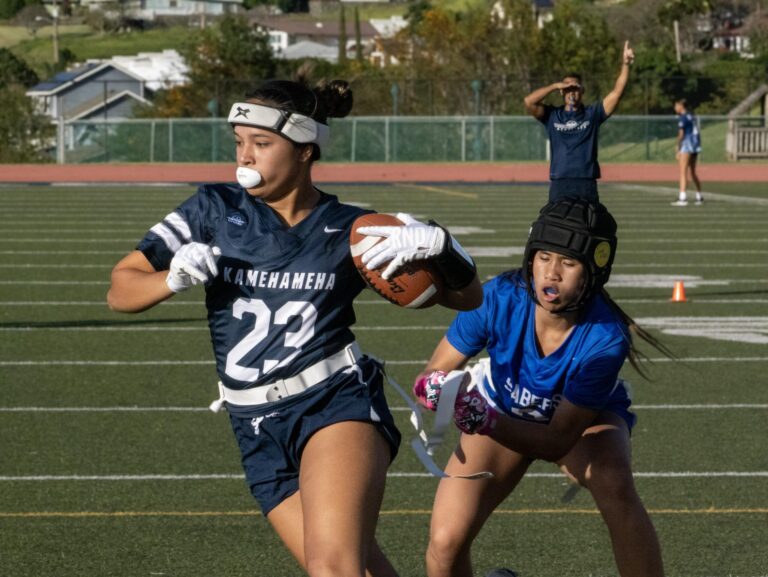Rhode Island’s Rising Stars Set Sights on National Flag Football Tournament in Houston
A dedicated group of 11- and 12-year-old athletes from Rhode Island is gearing up to compete at the highly anticipated AAU Flag Football National Championship in Houston. After months of intense training and participation in local competitions, these young players have developed not only their athletic skills but also a strong sense of teamwork and discipline. Coaches emphasize that character and sportsmanship are just as important as physical ability in their preparation.
The Rhode Island team will contend with elite youth squads from across the United States, each bringing distinct tactics and competitive energy. Standout players include versatile captains skilled in both offense and defense, quarterbacks known for their pinpoint accuracy, and receivers with exceptional speed and agility. The coaching staff is optimistic about their team’s ability to adapt and compete fiercely for the national title. Highlights of their preparation include:
- Focused agility and speed drills to enhance quickness and reaction time.
- Collaborative team-building activities to improve on-field communication.
- Competitive experience gained through regional qualifying tournaments.
- Strict adherence to flag football regulations to promote safety and fair play.
| Player | Position | Key Strength |
|---|---|---|
| Olivia Martinez | Quarterback | Accurate Passing |
| Jackson Reed | Wide Receiver | Explosive Speed |
| Sophia Nguyen | Defensive Back | Sharp Reflexes |
| Ethan Brooks | Linebacker | Powerful Flag Pulls |
Comprehensive Training and Tactical Approaches Fueling Youth Flag Football Success
The path to success at the AAU national flag football tournament is paved with a well-rounded training program tailored for young athletes aged 11 and 12. Coaches integrate a variety of drills focusing on agility, stamina, and technical skills to prepare players for the demands of high-level competition. Exercises such as speed ladder drills improve footwork and quickness, while position-specific shadowing hones players’ ability to make split-second decisions during gameplay. This holistic training ensures every athlete understands their role and contributes effectively to the team’s overall strategy.
On the tactical front, the team employs a versatile playbook designed to capitalize on opponents’ vulnerabilities while reinforcing their own strengths. Defensive strategies include a mix of zone coverage and man-to-man flag pulls, while offensive plays emphasize rapid passing, player motion, and stretching the defense to create scoring chances. Communication remains a cornerstone, with players using constant verbal cues and pre-play huddles to maintain cohesion. Regular video analysis sessions allow the team to review performances and refine tactics. Key strategic elements include:
| Strategic Element | Description |
|---|---|
| Defensive Schemes | Combination of zone and man coverage with swift flag pulls |
| Offensive Tactics | Quick-release passes, motion plays, and field stretching |
| Team Communication | Continuous verbal signals and organized huddles |
| Performance Review | Post-practice video breakdowns for tactical improvements |
The Vital Role of Community Support and Funding in Their National Quest
The team’s journey to the AAU national championship in Houston has been made possible through extraordinary community involvement and financial support. Local businesses, schools, and families have united to provide crucial funding that covers travel, accommodation, and equipment costs. Fundraising initiatives such as charity runs and community dinners have not only raised money but also strengthened the bond between the players and their supporters. Coaches acknowledge that this collective effort is indispensable to the team’s success.
Beyond financial assistance, community backing instills a deep sense of pride and belonging among the young athletes. Parents and volunteers dedicate countless hours organizing events and managing logistics, allowing the players to focus fully on their training and competition. The following table outlines how the team’s budget is allocated to maximize their readiness:
| Budget Category | Percentage Allocation |
|---|---|
| Travel and Transportation | 50% |
| Equipment and Uniforms | 22% |
| Lodging | 18% |
| Food and Miscellaneous | 10% |
- Local enterprises have contributed through sponsorships and donations.
- Community-driven fundraising activities have boosted engagement and morale.
- Volunteers play a key role in event coordination and logistical support.
Insider Advice from Rhode Island Coaches for Aspiring Flag Football Players
Rhode Island’s youth flag football coaches emphasize mastering the fundamentals as the foundation for success. They highlight the importance of precise footwork, accurate passing, and rapid decision-making as critical skills for excelling at the national level. “Regular, focused practice builds confidence, and confidence breeds champions,” says Coach Sarah Thompson, leader of one of Rhode Island’s premier youth flag football programs. Players are encouraged to engage in agility drills and teamwork exercises to boost their situational awareness and communication on the field.
Coaches also advocate for a balanced approach that combines physical conditioning with mental readiness. Their key recommendations include:
- Proper hydration and nutrition: Essential for maintaining energy during demanding tournaments.
- Studying game footage: Enhances strategic understanding and self-assessment.
- Maintaining a positive attitude: Embracing challenges and learning from setbacks is crucial.
- Exemplifying sportsmanship: Respect for teammates and opponents fosters character development.
| Skill Focus | Training Method | Coach’s Tip |
|---|---|---|
| Passing Precision | Target drills under game-like pressure | “Focus on small targets to improve accuracy.” |
| Speed and Agility | Ladder drills and cone weaving exercises | “Explosive movements trump pure speed.” |
| Game Intelligence | Simulated plays and opponent analysis | “Think two steps ahead of the competition.” |
In Conclusion
As Rhode Island’s 11- and 12-year-old flag football teams prepare to compete at the AAU national tournament in Houston, their dedication, teamwork, and community support exemplify the true spirit of youth sports. Armed with skill, determination, and a strong support network, these young athletes are poised to leave a lasting impression on the national stage, inspiring future generations of players. The Providence Journal will continue to track their exciting journey toward flag football excellence.




